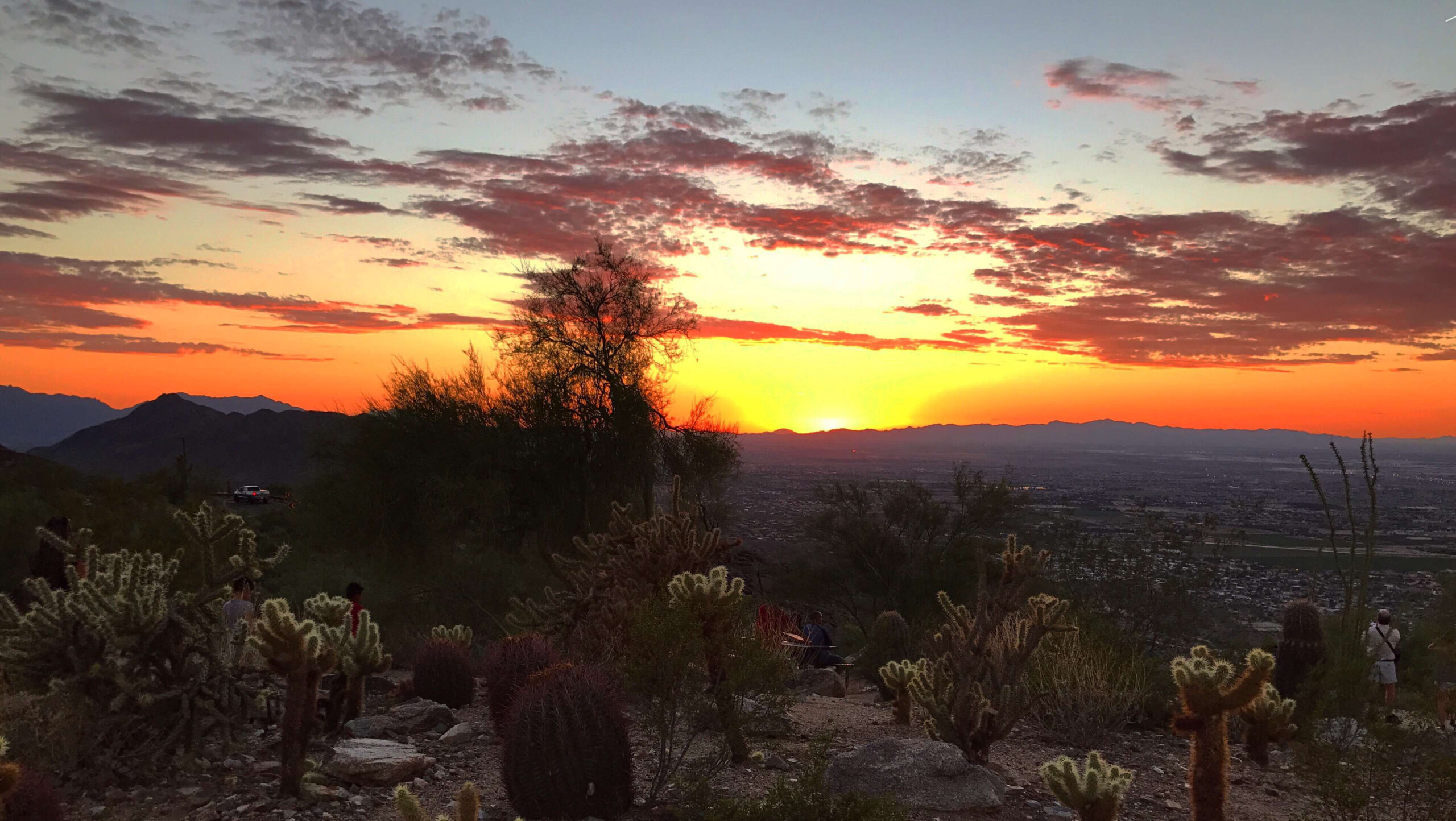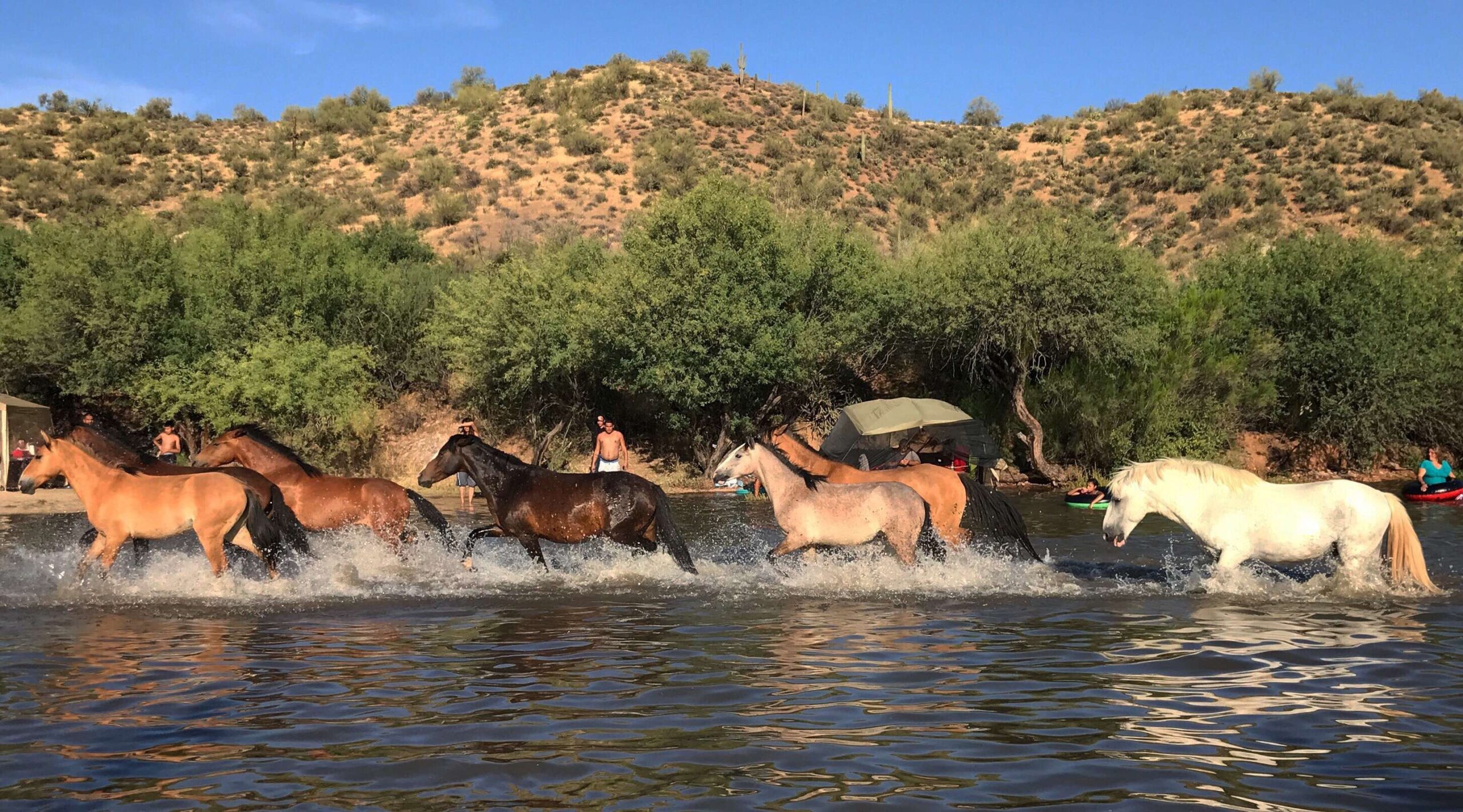Across vast distances: a dispatch from Tucson, Arizona
February 23, 2018
Bowdoin Back Home
Over winter break, the Orient dispatched writers to bring stories from their homes back to Bowdoin. Though we don’t often acknowledge it, Bowdoin is shaped by our experiences in these places, just as we are. Some of these stories will contain the writer’s experiences while others will put a spotlight on their peers. All will share insight into the places and people we bring with us to Bowdoin.
 Courtesy of Kathleen Armenta
Courtesy of Kathleen ArmentaAUDIO: Ellice Lueders reads.
Tucson, Arizona, is a city confined unlike any other. Geographically bound by mountains in every direction, Tucson is the only major US city without a highway running through it. The city is an asphalt island surrounded by a sea of towering, spiny kelp.
A few small outposts punctuate this productive ecosystem, dependent on Tucson’s watershed and the traffic through Tucson and the border. Homes are built far from the highway and lie hidden until night comes and their lights are cast miles across the open desert. Clues towards civilization are sparse: a gas station peddling terra cotta garden ornaments and a green sign marked I-10 to Tucson, Arizona. These towns are places most people move through, often pressing on to the border.
Kathleen Armenta ’21 is one of these pilgrims, the American-born daughter of Mexican immigrants. Her family returns to Mexico for holidays and family celebrations, curving around the airport and down past the Santa Rita mountains. Motorists can easily cruise control at 90 mph down its flat, straight line.
The route passes Armenta’s beloved White Dove of the Desert – a Catholic mission whose whitewashed stone emerges against the sparse Tohono O’odham reservation and flattop mines.
“I have a lot of faith in the church,” she said. “Traditionally, people make promises to a certain saint in the church and on a given date walk from their house to the church to complete the promise.”
Over her 19 years, Armenta has made many promises, mostly to herself and her family.
She first promised that she would go out of state for college in search of opportunities. Education in Arizona faces major challenges: it is the worst state in the Union to be a teacher and ranks 49 in education funding per pupil.
“I’ve seen students not given enough support,” Armenta said. “They see themselves as less and they give up. So they drop out of school and start to work instead of receiving an education.”
She sought out opportunities, enrolling in a program in middle school that gave students $50 for every A.
“From this middle school, I decided to go on taking higher classes and not only taking them but acing them as well,” she said steadily, advocating for her accomplishments.
She ended up at Bowdoin, she said, for her family. “They saw a bright future for me and I agreed with it.”
Although Bowdoin is “like a roller coaster” with changes in weather, language, dominant values and cultures, Armenta persists in this alternate world. “I want to give back to my parents for all the sacrifices they had to make just to arrive here in the United States,” she said.
Like most pioneers, armed with faith to forge a new path, Armenta’s life entails trial and demands courage.
•••
 Courtesy of Kathleen Armenta
Courtesy of Kathleen ArmentaFor many, the landscape of southern Arizona is synonymous with the American ideals of freedom, openness and self-determination.
More universal still is the vast, open emptiness of the desert and its low horizon. Things are far apart here. From passenger windows, rock formations pass at a glacial pace. One monument can be a trip’s landmark, shifting by angles every dozen miles. It is easy to feel alone here, even among other speeding cars.
Civilization returns at the border town of Nogales, whose population on the US side of the border is one tenth its count on the Mexican side. Armenta takes the Mariposa exit hidden to the left of the primary checkpoint, which can get crowded with eighteen-wheelers.
“Throughout my life, I always had to be fearing the border patrol roaming around these streets, and having my family always by my side because I thought I was their protector,” said Armenta.
“When we cross the border it’s like a different gasp of air, a different feeling, a different freedom,” she added.
On one side of the border, she sees her assimilation, enforced by hate and her own aspirations. On the other, she has a family that implores her to prove her cultural heritage, to show that their customs and mores can transplant in a new land. Armenta often feels dislocated.
“When I cross the border, it feels like a jail, where you always have to have a permission – your passport – in order to cross to another place you love as well and it’s part of you, however; you’re not from there.”
Armenta has fought for the United States and for her community in Tucson, attending protests for women’s rights and against the strict – some argue racist – anti-immigration bill SB 1070.
Joe Arpaio, the former sheriff of Maricopa County, gunned for and implemented discriminatory practices under SB 1070, even after a judge ruled these practices illegal. His crimes were presidentially pardoned last year, and he announced over break that he was running for senate.
“I am hoping people don’t vote for him,” said Armenta. “And if they do, I think it would be such a sad view on the reality of what people actually think of others.”
She will be in Maine, working towards her education and dreams of helping fix America’s broken immigration system. For her family and friends back home, there is nothing she can do but vote.
“I decided to choose a more difficult path because I knew there would be more opportunities for me,” she said. “And that’s how I’ve always chosen. I’ve always chosen the more difficult path.”
Comments
Before submitting a comment, please review our comment policy. Some key points from the policy:
- No hate speech, profanity, disrespectful or threatening comments.
- No personal attacks on reporters.
- Comments must be under 200 words.
- You are strongly encouraged to use a real name or identifier ("Class of '92").
- Any comments made with an email address that does not belong to you will get removed.

This is a lovely start to what I hope is a long-running series. Kathleen is right– we all need to vote with compassion for and awareness of others. And as someone who has prayed in the White Dove of the Desert only once, over a decade ago, I can understand why it is such a special place for her. Good luck to Kathleen, at Bowdoin and beyond. Her courage bodes well for her.